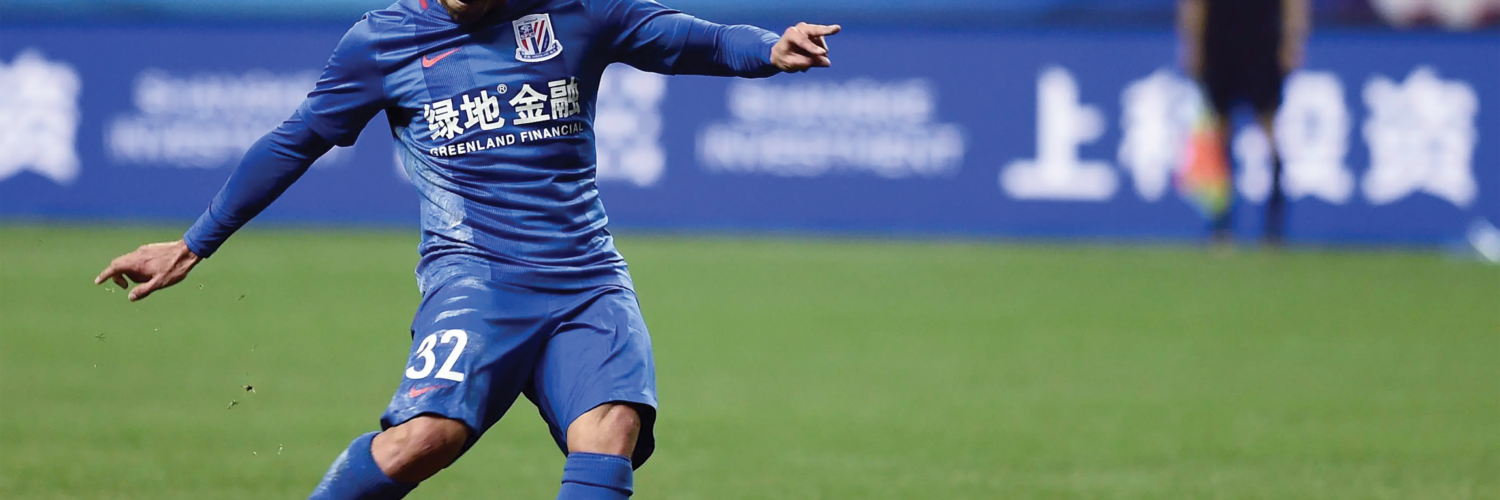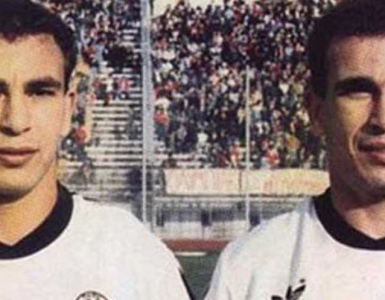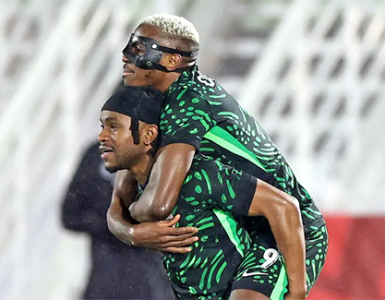SAD: The bubble has burst with revenue generation for clubs the biggest problem and international players leaving in droves
By Sports Reporter
In June 2016, hundreds of fans gathered at Shanghai airport to watch one of the most famous footballers in the world make the city his home.
Hulk, a 29-year-old Brazil international at the peak of his powers, had been signed by Shanghai SIPG manager Sven-Goran Eriksson for more than £46m and would earn reported wages of £320,000 a week.
As he strode through arrivals, a welcoming bouquet of flowers was thrust into his arms and a Shanghai SIPG scarf draped over his neck.
Over the next three years, he was joined by other big names, signed for even bigger price tags.
Chelsea star Oscar arrived six months later. The transfer fee was about £60m, while his wages were believed to be £400,000 a week.
Carlos Tevez, who had won the Premier League with Manchester United and City, reportedly earned even more when he joined. Paris St-Germain star Ezequiel Lavezzi,Liverpool target Alex Teixeira and Colombia striker Jackson Martinez were also lured with astronomical transfer fees and bumper pay cheques.
The rise of the Super League came alongside President Xi Jinping’s wish to turn the country into a footballing nation. In 2011, he announced plans for the men’s national team to qualify for a World Cup and for China to eventually host the tournament.
As the Chinese Super League began spending large sums of money, his ambition to turn the nation into a football super power started to look very real.
Less than a decade on, though, and the movement is in the opposite direction, with the bubble bursting and players leaving.
By 2019, the league had become so big that Real Madrid’s Gareth Bale – at one point the most expensive player in the world – was tipped for a move to Jiangsu Suning on a three-year, £1m-a-week contract.
Less than two years later, Jiangsu Suning ceased operating with their financial situation so bad that they even auctioned off the team’s bus for cash.
How did the Chinese football scene implode so spectacularly?
Things went downhill when China’s Football Association, which had already introduced a ‘luxury tax’ that made big-money transfers prohibitively expensive and banned sponsors from naming teams after themselves, announced a salary cap in December 2020.
At the time, the CFA said it hoped the move would “curb money football” and provide an “investment bubble” in the Chinese national team.
For some time, China’s sport administration had been wary of the league’s spending. In 2017, it vowed to curb spending and control “irrational investment”, accusing clubs of “burning money” and paying foreign players with “excessive salaries”.
The salary cap certainly had the desired effect. The limit meant overseas players would only be able to earn a maximum of £52,000 a week, far lower than the contracts previously offered to star names. Some teams needed such restraints having piled up debts via their big spending. A large number of clubs’ troubles were also exacerbated by their owners’ growing problems in China’ real estate sector with several home-building giants running into cash flow problems.
On top of everything, the Covid pandemic hit.
China’s strict containment policies reduced fixture lists and kept whatever games were staged behind closed doors for more than two years. Broadcast and sponsorship revenues duly plunged.
Carlos Tevez argues with the referee in a match against Brisbane Road Tevez, who signed for Shanghai Shenhua from Boca Juniors, later described his year in the Chinese Super League as ‘a holiday’
Bosnia-Herzegovina defender Samir Memisevic played for Hebei FC from February 2020 – but by his second season at the club, could tell there were issues behind the scenes. “The second season, I thought that something was wrong,” he told the BBC. “After a few months, financial problems started. Then they had a big problem with the Chinese players – they didn’t pay them for a lot of months and I was sure that at the end of that year Hebei would not exist any more.”
Memisevic received and accepted an offer to go on loan to Beijing Guoan, one of the top clubs in the league. Some employees, furloughed without pay for months, offered to work for free as the club, owned by a debt-ridden real estate company, struggled to pay its utility bills.
It was all in vain though. Earlier this year, Hebei disbanded. For John Hassett, the Chinese Super League will not be the same without his favourite team, Guangzhou City. The club, which has been managed by Eriksson and former Arsenal and Rangers star Giovanni van Bronckhorst in the past, also disbanded in March.
Every home game, Hassett looked forward to meeting fellow fans and joining them to cheer on the team.
“For lots of people, the social side was as important as the football,” he told the BBC.
“Tickets are very cheap. Our season ticket was £50 or £60. Some of the student groups were buying tickets cheaper than that. Most people don’t buy the official shirts, they got them outside the stadium for £3.
“Revenue generation for clubs is the biggest problem the Super League will have. As the economy tightens, where does the money come from?”
Late last year, as the countdown to reopening stadiums to fans began, another question was being asked; where has the money gone? A corruption scandal spread through the highest offices of the domestic game.
Former Everton midfielder and ex-head coach of China’s men’s team, Li Tie, was investigated for “serious violations of the law”, with charges of bribery brought in August.
Chen Xuyuan, the Chinese Football Association’s former chairman, is facing similar accusations while South Korea midfielder Son Jun-ho, who played for Shandong Taishan, has been detained since May on suspicion of accepting bribes.
Now, only a small number of foreign players remain in the league. Those currently playing in China, both local and foreign players, did not respond to interview requests from the BBC.
But despite the league’s problems, there is still a demand for domestic football. When tickets for Beijing Guoan’s first match back in front of a crowd went on sale in April, they sold out within five minutes.
Alberto Doldan, who has worked in China with La Liga and made deals in Asia as an agent, said that the aggressive acquisition of talent by top teams in Saudi Arabia currently is reminiscent of the CSL’s peak. But he insists that the Chinese league still has a future, even if it is different from the one that once seemed possible.
“Many teams in China have disappeared due to financial problems,” he told the BBC. “But I think the future will be better because they’ve been working with young players. I think in the next five, six or seven years, we’ll get more local players with a higher level. “China is still a good place. I think the future is in the local players.”
Now with fewer, flown-in superstars, the focus is on producing more homegrown superstars to grow the league and improve China’s prospects at the World Cup, a tournament which, on the men’s side, they have qualified for only once.
CAF AWARDS ARE HERE
By Sports Reporter
With a few days to the 2023 CAF Awards on Monday, CAF has unveiled the top three nominees for all the categories for the CAF Awards 2023.
The ultimate winner of each category is decided following votes from a panel consisting of CAF Technical Committee, media professionals from Member Associations, Head Coaches & Captains of Member Associations and clubs involved in the group stages of the Interclub competitions.
The Awards Gala will take place on Monday, 11 December 2023, at the Palais des Congrès, Movenpick, Marrakech, Morocco at 19H00 local time (18H00 GMT). Full List of Nominees (in alphabetic order by Member Association):
Player of the Year (Men)
Mohamed Salah (Egypt, Liverpool)
Achraf Hakimi (Morocco, Paris Saint-Germain)
Victor Osimhen (Nigeria, Napoli)
Player of the Year (Women)
Asisat Oshoala (Nigeria, Barcelona)
Thembi Kgatlana (South Africa, Racing Louisville)
Barbara Banda (Zambia, Shanghai Shengli)
Interclub Player of the Year (Men)
Fiston Mayele (DR Congo, Pyramids)
Peter Shalulile (Namibia, Mamelodi Sundowns)
Percy Tau (South Africa, Al Ahly)
Interclub Player of the Year (Women)
Refilwe Tholakele (Botswana, Mamelodi Sundowns)
Fatima Tagnaout (Morocco, AS FAR)
Lebohang Ramalepe (South Africa, Mamelodi Sundowns)
Coach of the Year (Men)
Abdelhak Benchika (Algeria, Simba SC)
Walid Regragui (Morocco)
Aliou Cisse (Senegal)
Coach of the Year (Women)
Reynald Pedros (Morocco)
Desiree Ellis (South Africa)
Jerry Tshabalala (South Africa, Mamelodi Sundowns)
Goalkeeper of the Year (Men)
Andre Onana (Cameroon, Manchester United)
Mohamed El Shenawy (Egypt, Al Ahly)
Yassine Bounou (Morocco, Al Hilal)
Goalkeeper of the Year (Women)
Khadija Er-Rmichi (Morocco, AS FAR)
Chiamaka Nnadozie (Nigeria, Paris FC)
Andile Dlamini (South Africa, Mamelodi Sundowns)
Young Player of the Year (Men)
Abdessamad Ezzalzouli (Morocco, Real Betis)
Lamine Camara (Senegal, Metz)
Amara Diouf (Senegal, Metz)
Young Player of the Year (Women)
Comfort Yeboah (Ghana, Ampem Darkoa)
Nesryne El Chad (Morocco, Lille)
Deborah Abiodun (Nigeria, Pittsburgh Panthers)
National Team of the Year (Men)
Gambia
Morocco
Senegal
National Team of the Year (Women)
Morocco
Nigeria
South Africa
Club of the Year (Men)
Al Ahly (Egypt)
Wydad Athletic Club (Morocco)
Mamelodi Sundowns (South Africa
Club of the Year (Women)
AS FAR (Morocco)
Sporting Casablanca (Morocco)
Mamelodi Sundowns (South Africa)


































